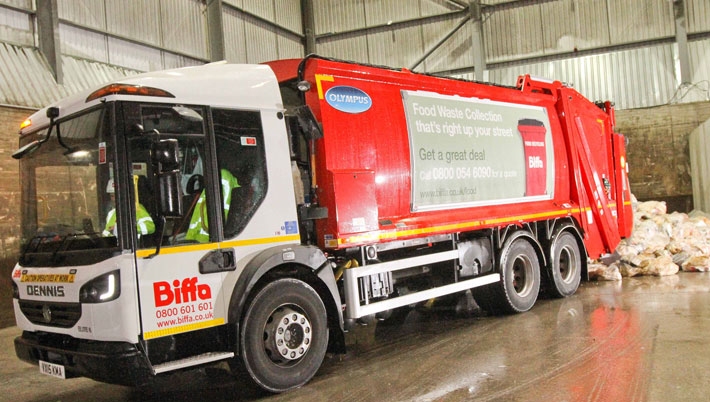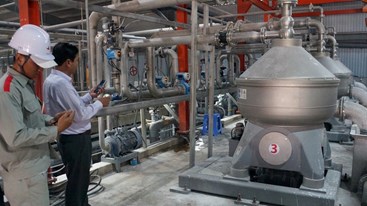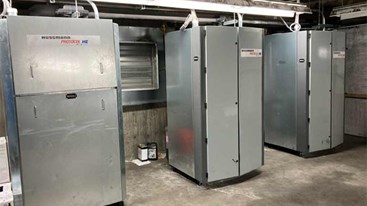Thursday, 05/02/2026 | 02:31 GMT+7
Waste services provider Biffa has announced a £1.5m investment to expand its food waste processing capacity across the UK.
The investment will help build four new food waste transfer stations, which will be used to collect and sort food waste before it is sent to be treated at the company’s anaerobic digestion plants in Staffordshire, Leicestershire and West Sussex.
Biffa said the infrastructure upgrade will allow it to process more food waste, in less time, “creating huge efficiencies in the process of ultimately converting it into renewable energy”.
The first transfer station has now been installed inside Biffa’s existing waste transfer plant in St Helens, Merseyside, with further transfer stations planned in Yorkshire, the South West, the South East and Scotland.
Chris Savage, general manager of Biffa’s anaerobic digestion plant at Cannock, one of the largest anaerobic digestion plants in Europe, said: “The UK generates around 15 million tonnes of food waste each year, with businesses in the food service sector accounting for just under half of this. Sadly, 40% of this waste is currently lost to landfill due in part to a lack of regulation which would enforce food waste segregation among businesses as well as a lack of facilities to collect food waste.
“Biffa has a long-term commitment to diverting food waste away from landfill. Our investment into the new transfer stations will create great efficiencies in the collection and preparation of food waste before it is sent to our anaerobic digestion plants. There, the waste is treated and converted into renewable energy which is exported to the National Grid, as well as an energy rich ‘liquid gold’ digestate derivative which farmers can apply to agricultural land.”

National issue
Disposing of food waste responsibly is becoming increasingly important as landfill diversion becomes the focus of waste management policy. Research by the Waste and Resources Action Programme (WRAP) says the UK could reduce greenhouse gas emissions by 27m tonnes and businesses could save £2bn, if we achieve zero food waste to landfill by 2020.
Biffa’s anaerobic digestion facilities currently enable up to 240,000 tonnes of food waste per year to be recycled.
Food waste has become a global hot button topic in recent months. Just last week, two major international initiatives were launched to fight the problem – 'Champions 12.3', led by Tesco chief executive Dave Lewis and the Rockefeller Foundation’s YieldWise initiative.
Nearly a third of all food is lost or wasted globally, costing $940bn per year and accounting for around 8% of global greenhouse gas emissions.
Edie.net








 Energy Efficiency and Conservation: Technology as the “Key”
Energy Efficiency and Conservation: Technology as the “Key”
 Opening of the 2025 Energy-Efficient Equipment and Green Transition Exhibition Fair
Opening of the 2025 Energy-Efficient Equipment and Green Transition Exhibition Fair
 Energy-saving solutions and green transition promotion
Energy-saving solutions and green transition promotion
 Consultation on the methodology for developing and updating energy consumption standards for four major industrial sectors
Consultation on the methodology for developing and updating energy consumption standards for four major industrial sectors
 Develop sales and marketing strategies for energy efficiency equipment and solution suppliers
Develop sales and marketing strategies for energy efficiency equipment and solution suppliers
 The 9th VEPG Steering Committee Meeting: Strengthening Coordination for Viet Nam’s Just Energy Transition
The 9th VEPG Steering Committee Meeting: Strengthening Coordination for Viet Nam’s Just Energy Transition